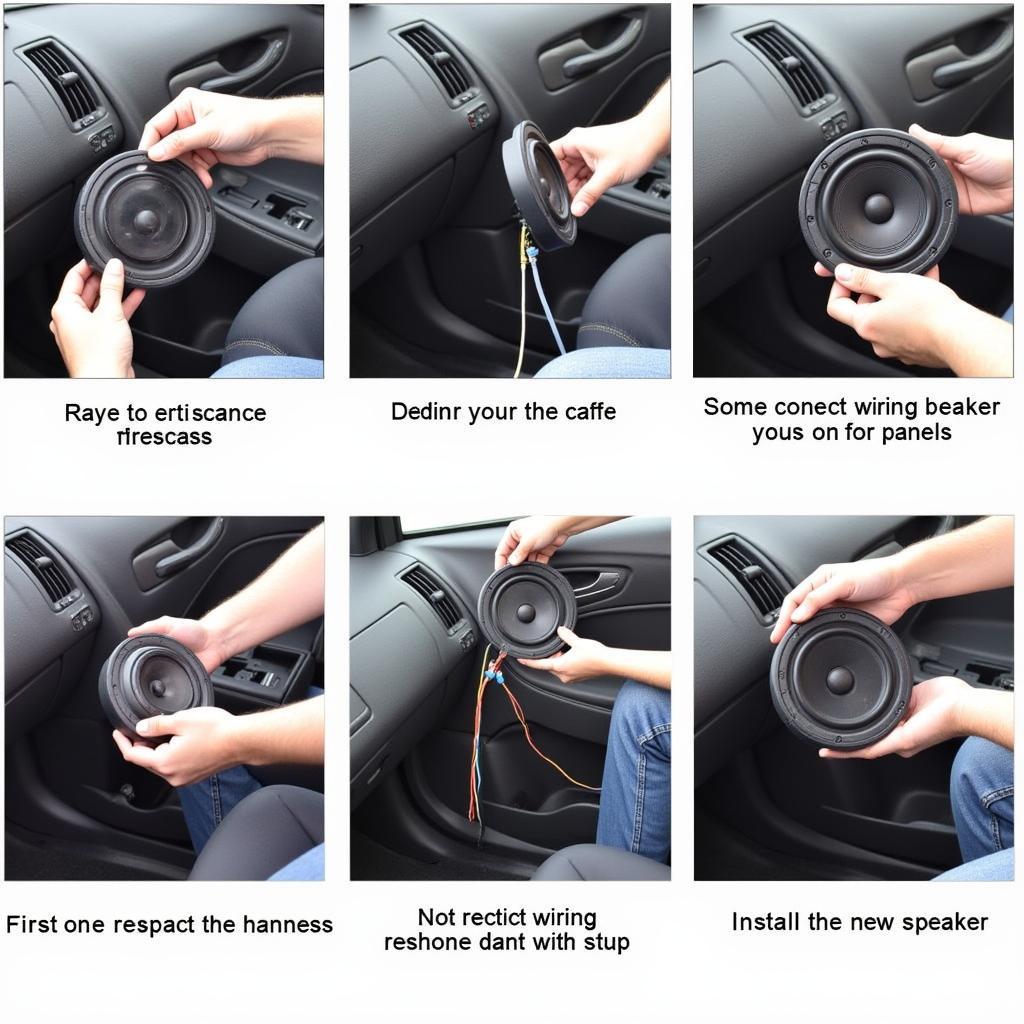Imagine cruising down the road on a sweltering summer day, only to be greeted by a blast of hot air from your car’s AC vents. Your AC compressor, the heart of your vehicle’s cooling system, might be the culprit. This comprehensive guide delves into the intricacies of Fixing Car Ac Compressors, empowering car owners, mechanics, and enthusiasts alike to tackle this common automotive issue.
Understanding the Car AC Compressor
The AC compressor is responsible for circulating refrigerant throughout the system, effectively cooling the air blown into your car’s cabin. When functioning correctly, it compresses the refrigerant, transforming it from a low-pressure gas to a high-pressure, high-temperature vapor. This vapor then travels to the condenser, where it cools down and condenses into a high-pressure liquid. The cycle continues as this liquid passes through an expansion valve, evaporating back into a low-pressure gas and absorbing heat from the surrounding air, resulting in cool air flowing through your vents.
Common AC Compressor Problems
Several issues can plague your car’s AC compressor, leading to inefficient cooling or complete system failure. Recognizing the symptoms can help you diagnose the problem and determine the necessary course of action.
1. Refrigerant Leaks
Refrigerant leaks are among the most prevalent AC compressor issues. A leak in the system can lead to reduced cooling efficiency and eventually, a complete system shutdown.
2. Compressor Clutch Failure
The compressor clutch engages and disengages the compressor from the engine. A failing clutch can result in the compressor not engaging at all, leading to no cool air.
3. Worn-Out Compressor Parts
Over time, internal components of the compressor, such as bearings, seals, and pistons, can wear out, reducing compressor efficiency and eventually leading to its failure.
4. Electrical Issues
Electrical problems, such as a faulty wiring harness or a blown fuse, can disrupt the compressor’s power supply, preventing it from functioning correctly.
Troubleshooting AC Compressor Issues
Before concluding that your AC compressor needs replacement, it’s crucial to troubleshoot the system to pinpoint the root cause of the problem.
- Check the Air Conditioning System Pressure: Using a gauge manifold set, check the pressure readings on the high and low sides of the AC system. Abnormal readings can indicate a refrigerant leak, a faulty compressor, or a blockage in the system.
- Inspect the Compressor Clutch: Visually inspect the compressor clutch for signs of wear and tear, damage, or debris. If the clutch is not engaging when the AC is turned on, it could be due to electrical issues or a faulty clutch mechanism.
- Listen for Unusual Noises: A failing AC compressor can produce various noises, such as grinding, squealing, or rattling. These noises usually indicate worn-out internal components.
“A thorough inspection and diagnosis are paramount when dealing with car AC compressor issues,” says automotive expert John Miller, a seasoned mechanic with over 20 years of experience. “Jumping to conclusions without proper troubleshooting can lead to unnecessary expenses and wasted time.”
Fixing a Car AC Compressor
The repair procedure for a car AC compressor varies depending on the specific issue at hand.
- Refrigerant Leak Repair: Locate and repair any refrigerant leaks before recharging the system with the appropriate type and amount of refrigerant.
- Compressor Clutch Replacement: Replace a faulty compressor clutch to restore proper engagement and disengagement of the compressor.
- AC Compressor Replacement: If the compressor itself is damaged or worn out, replacement is often the most viable option.
how to fix refrigerant leak in ac car
It is vital to note that working with AC systems requires specialized tools and knowledge. If you are not comfortable working on your car’s AC system, it is best to seek assistance from a qualified mechanic.
Conclusion
A properly functioning AC system is essential for a comfortable driving experience, especially during hot weather. Understanding the common issues associated with car AC compressors and how to troubleshoot and fix them can save you from uncomfortable drives and costly repairs. While some repairs can be done by experienced DIY enthusiasts, it’s always recommended to consult with a qualified mechanic for complex issues to ensure the job is done correctly and safely.
how to fix car air conditioning leak
If you’re experiencing issues with your car’s AC compressor, don’t hesitate to contact the experts at AutoTipPro. Our team of certified technicians is standing by to provide top-notch automotive solutions tailored to your specific needs. Call us at +1 (641) 206-8880 or visit our office at 500 N St Mary’s St, San Antonio, TX 78205, United States.






Leave a Reply